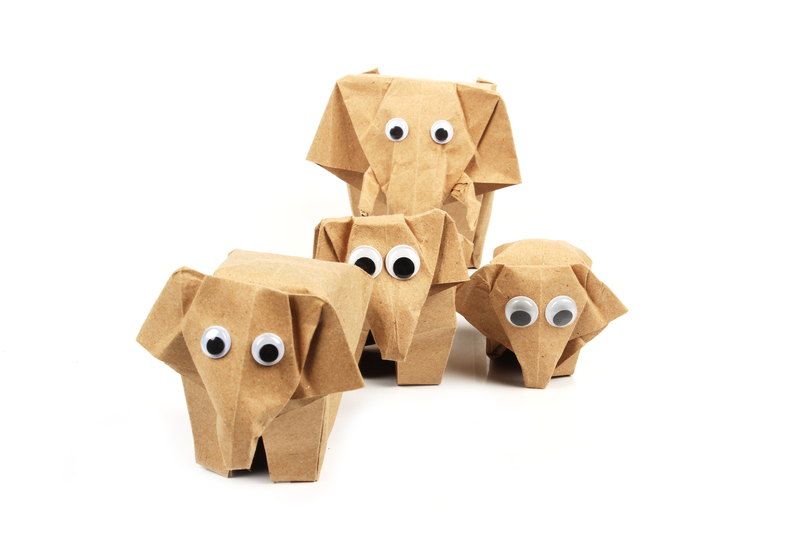Kid-Friendly Tips for Starting a Recycling Habit
Recycling is a vital practice for protecting our planet, and teaching kids the importance of reducing, reusing, and recycling can create lifelong eco-friendly habits. Are you ready to make recycling a fun and natural part of your family's daily routine? This guide covers kid-friendly tips for nurturing recycling habits that are as enjoyable as they are educational.
Why Should Kids Learn About Recycling?
Helping children understand the impact of their choices empowers them to care for the environment. Developing a recycling habit early instills responsibility, empathy, and resourcefulness. Here are some reasons why kids benefit from learning about recycling:
- Environmental Awareness: Kids realize how everyday actions affect our planet's health.
- Long-Term Habits: Early education builds lifelong environmentally conscious citizens.
- Empowerment: Kids understand they can make a difference, boosting their confidence.
- Family Bonding: Shared eco-friendly routines strengthen family connections.

Begin with the Basics: Explaining Recycling to Kids
1. Simple Definitions
Use clear language and examples. For instance, say: "Recycling means turning old things like paper, bottles, or cans into new items so we use less from nature and keep our world cleaner."
2. Visual Learning
Show kids what goes in the recycling bin and what doesn't. Consider making a color-coded chart together and placing it near your bins for quick reference.
3. Answer Their Questions
Be patient and encourage their curiosity. Kids might ask, "Why can't we recycle pizza boxes?" or "What happens to the bottles after the truck takes them?" Find fun videos or books that explain the recycling process on a kid's level.
Make Recycling Fun: Games and Activities
1. Recycling Sorting Game
Turn recycling into a game. Gather clean items (like empty containers and boxes) and let kids race to sort them into correct recycling bins. Reward accuracy and speed with stickers or points!
2. Craft Time With Recyclables
Gather materials such as cardboard rolls, plastic bottles, and old magazines. Challenge kids to make art, toys, or useful containers from these items. This creative activity demonstrates how "waste" can become something new and valuable.
3. Storytelling and Eco-Themed Books
Reading stories about recycling, such as The Adventures of a Plastic Bottle or Michael Recycle, helps kids connect emotionally with environmental themes. After the story, discuss what recycling means to them and brainstorm what actions your family can take.
4. Trash Detective Walks
Take a walk in your neighborhood or a local park and observe litter and recycling habits. Have your child be a "trash detective" and spot items that could be recycled. Bring gloves and a bag, and clean up together where safe and appropriate.
5. Recycling Rewards Chart
Keep track of your child's recycling contributions on a colorful chart or calendar. Celebrate milestones, like filling a recycling bin or learning a new recycling fact, with small rewards or special privileges.
Set Up Kid-Friendly Recycling Stations at Home
Create a recycling system that's visually appealing and easy for children to use:
- Colorful Bins: Use different colors for paper, plastics, and glass. Label them with pictures for easy recognition.
- Accessible Placement: Position bins at a level kids can reach, especially in kitchens, bedrooms, or playrooms where waste is generated.
- Clear Guidelines: Post a simple chart or sign with "yes/no" items for each bin.
Encouraging Participation
Involve your child in decorating bins with stickers or drawings, making them feel ownership of the recycling process.
Lead by Example: The Power of Family Routines
Children imitate what they see. Model positive recycling habits by:
- Sorting recyclables as a family after meals.
- Discussing why it's important before taking out the trash or recycling.
- Celebrating progress together, whether it's reducing waste or recycling more each week.
Integrate Recycling into Daily Life
Incorporate recycling actions into your family's unique schedule. For example, make sure recycling is part of morning chores or after-dinner cleanup. The more routine and normalized recycling becomes, the more likely it is to stick.
Explore Community Recycling Events & Resources
1. Visit a Recycling Center
Take a family tour of your local recycling facility. Many centers offer guided tours or educational open houses. Children will be amazed to see machines in action, watch how materials are sorted, and learn where their recyclables go.
2. Attend Eco-Fairs and Cleanups
Look for community recycling days, school Earth Day events, or neighborhood cleanups. These fun, interactive gatherings allow kids to get hands-on experience and meet others who care about the planet.
3. Library Resources and Workshops
Many libraries or community centers offer recycling storytimes, eco-friendly craft days, and workshops for all ages. Keep an eye out for calendar events near you.
Teach the Three R's: Reduce, Reuse, Recycle
Reinforce the full message of sustainability, not just the act of recycling. Here's how to help your child understand and apply each "R":
- Reduce: Use less. Explain why it's important to avoid waste--such as choosing reusable water bottles instead of single-use plastic.
- Reuse: Find new purposes for old things. Encourage kids to repurpose boxes, jars, or toys before deciding to throw them away or recycle.
- Recycle: Properly sort paper, plastic, glass, and metal so they can be processed and made into new products.
Discussion Starters
- What is something you threw away today that you could have reused?
- If you were in charge, how would you help everyone recycle more?
- Can we do a "no trash day" challenge as a family?
Handle Common Recycling Challenges with Kids
Starting a family recycling habit can come with a few hiccups. Here are common challenges--and how to overcome them with kids:
- Confusion over Sorting: If kids are confused by what goes where, keep sorting instructions as visual and simple as possible. Use stickers, images, or even a digital app.
- Lack of Motivation: If interest fades, shake up your approach--try new games, encourage friendly family competitions, or plan a fun recycling goal (like a movie night reward).
- Mess and Odors: Teach kids to rinse recyclables and empty containers. Assign regular "recycling helper" tasks to keep stations tidy.
Connect Recycling to Real-World Impact
Show children how their actions matter. For example:
- Each recycled aluminum can saves enough energy to run a television for three hours.
- Recycling one ton of paper saves 17 trees.
- Making products from recycled plastic uses 88% less energy than making them from raw materials.
Share news stories or online videos that highlight successful recycling programs or amazing products made from recycled materials. Inspire kids with positive examples from around the world.
Recycling for Different Ages: Tailor Tips for Success
Preschoolers (Ages 2-5)
- Focus on color and shape matching with bins and items.
- Read short, rhyming recycling books.
- Praise every small recycling action enthusiastically.
Elementary Kids (Ages 6-11)
- Encourage leadership by making kids a "Recycling Captain."
- Research together what happens to items they recycle.
- Involve them in setting up the home recycling system and reporting family progress.
Preteens and Teens (Ages 12+)
- Let them design waste-reduction campaigns for school or social media.
- Encourage volunteering at community events.
- Explore environmental documentaries as a family and discuss real-world solutions.
Use Technology to Support Recycling Habits
Technology can be a fun and interactive way to reinforce recycling knowledge:
- Explore recycling-themed apps and games that test sorting skills or track how much your family recycles.
- Find YouTube videos or educational channels with recycling experiments and eco-challenges.
- Let kids film a short video or create a poster about why recycling is important to them.

Final Thoughts: Building a Lifelong Recycling Habit
Starting a recycling habit for kids doesn't have to be boring or overwhelming. By making it playful, visual, and part of everyday life, you can inspire your child to become a passionate caretaker of the earth.
Remember: The best way to cultivate lasting eco-friendly habits is celebrating small successes, staying patient, and keeping things interesting.
Help your children realize that their actions matter--and together, you can make a big impact. Start your family's recycling adventure today for a greener tomorrow!